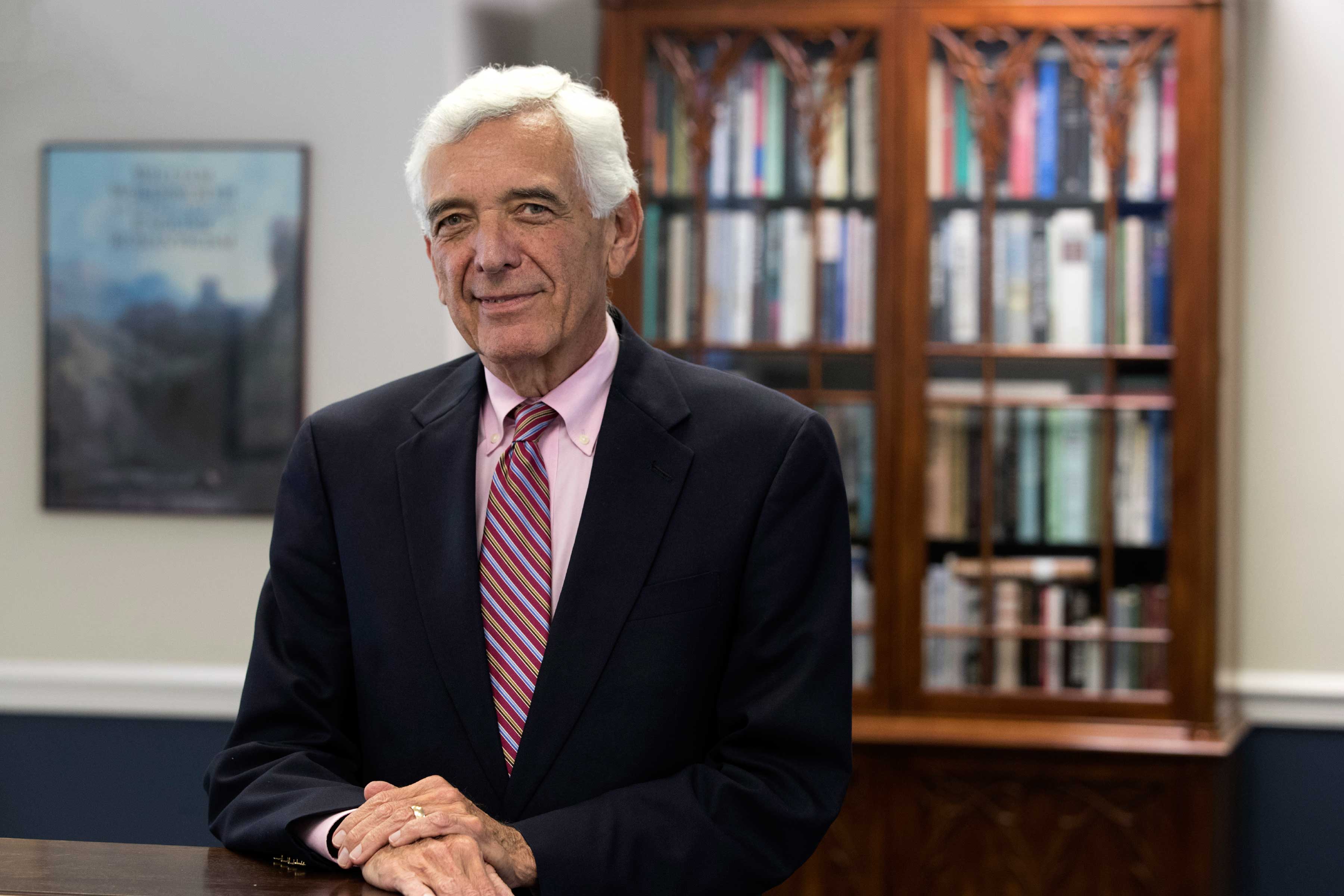It all started with a phone call on a cold January day in 1974.
Former University of Virginia President Edgar F. Shannon was calling a graduate student in the English Department to seek his help with a new humanities program. Robert Vaughan had no idea that fateful conversation would lead to his life’s work as founding president of the Virginia Foundation for the Humanities.
“He said he was interested in doing something in the humanities and asked me to come over,” Vaughan recalled. “I’d never met President Shannon, but he got my name from the English Department. I agreed to work with him for five months, and then I agreed to stay for three years. And then they couldn’t get rid of me after that.”
Now, after more than four decades at the helm of the foundation, Vaughan is preparing for retirement next year. Under his guidance, Virginia Foundation for the Humanities has grown into the largest and most influential state humanities council in the nation. It has produced more than 40,000 programs, including festivals, conferences, digital resources and public radio programs that reach listeners in 32 states by broadcast and many more through podcasts.
Vaughan and Shannon started it all by asking questions. Together, they drove all over the state and held community forums asking for the public’s input on what they wanted out of a humanities council. For Vaughan, those early questions became guiding principles and although the answers have changed with time, the foundation still poses many of the same essential queries to the public today. They ask, “What is your perception and understanding of the humanities?” and “What do you consider to be the major public issues facing Virginia in the next decade?”
The foundation has kept pace with the changing responses by creating programs that reflect the growing diversity of cultures and perspectives in Virginia. Vaughan credits the foundation’s tremendous success in this adaptability to its dedicated staff and their continual willingness to be flexible and experiment with new ideas.
“I think if I did anything really wonderful as president, it was the people I hired. They’re absolutely extraordinary,” he said. “We have wonderfully creative and entrepreneurial people and we’ve always had such a staff. We’ve got people who can be innovative and take on projects without anybody saying ‘do this’ or ‘do that.’”
That pioneering spirit has made the foundation a national leader in many areas, including minority programming and cultural preservation initiatives.
“Robert was instrumental in two programs that were firsts in the state and maybe even the whole country, our African-American programs and our Virginia Indian programs,” said Barbara Fried, who chairs the foundation’s board of directors and is a member of the University's Board of Visitors.
African-American programming has been a part of the foundation since its earliest days and has overseen thousands of events and exhibits. Among its major accomplishments are the management of the African-American Historic Sites Database and the creation of the popular traveling exhibit and book, “Don’t Grieve After Me: The Black Experience in Virginia, 1619-2015.”
Virginia Indian programs are newer to the foundation. In 2007, Vaughan hired Karenne Wood, a member of the Monacan Indian nation and tribal historian, to direct the programs. Together they’ve launched important historic projects, like the Virginia Indian Archive, and have worked with educators to correct common inaccuracies taught about Virginia’s native peoples.
Their work has made the foundation a leader in Native American studies; in fact, it’s one of many foundation programs that have become guiding national examples under Vaughan’s watch.
“Robert Vaughan is one of the most highly respected and gifted state humanities council leaders in the country,” said William D. Adams, who chairs the National Endowment for the Humanities. “Under his guidance, Virginia Foundation for the Humanities has become a model for what public humanities practices can and should look like.”
Other foundation triumphs include the annual Virginia Festival of the Book – which in 2016 held more than 250 literary events around Charlottesville and hosted more than 400 authors – and two nationally broadcast public radio programs, “With Good Reason” and “Backstory with the American History Guys.”
When asked if he’s had any particular favorites among all these successful projects, Vaughan confesses that he could never choose just one.
“It’s really everything. That’s the short answer,” he said. “The opportunity to do anything that I ever imagined wanting to do, or anything that I ever planned to do and a lot of things that I never imagined and never planned to do has made me want to stay all these years.”
After 43 years of service, Vaughan will finish his term as president on June 30, 2017 and, following a sabbatical, will officially retire at the end of the year.
Media Contact
Article Information
September 2, 2016
/content/retiring-virginia-foundation-humanities-president-leaves-lasting-legacy

